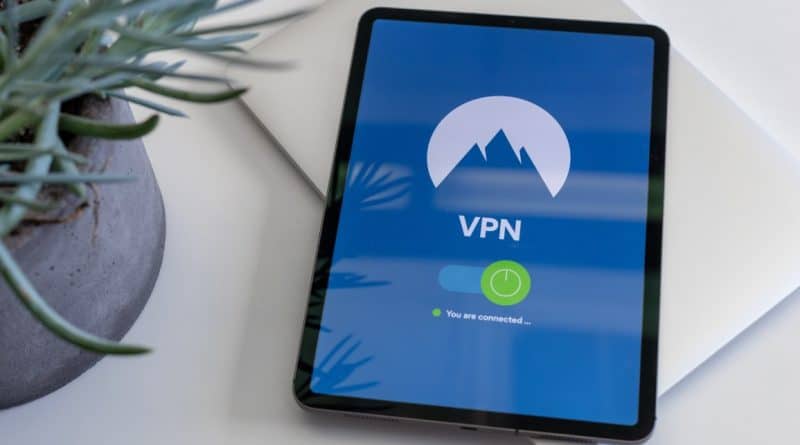New Tech Considerations for Businesses Post-Covid
New Tech Considerations for Businesses Post-Covid: While it may still seem like a distant idea, a post-Covid business world will come to be at some point sooner or later. Whether it’s something we continue to piece together with proper precautions and a growing prevalence of fast testing mechanisms, or it’s something that comes about in the aftermath of an effective vaccine, we will get back to business at usual — or at least an approximation of it. Even when that day comes though, there are going to be some common changes that many in various industries will need to get used to.
Some of these changes will have to do with office layout and usage. A Bloomberg article on office changes took an interesting angle on this topic, discussing what an office actually offers, such as the opportunity to socialize and collaborate. And these are some of the things companies will be looking to preserve in post-Covid offices. Floor layouts may be adjusted, plastic shields may be erected, and meetings may be reimagined all in order to help people to socialize and work together in person, but do so in a manner that will feel reassuring and safe even if and when the coronavirus is behind us.
Table of Contents
New Tech Considerations for Businesses Post-Covid
Beyond these types of changes to office environments though, the post-Covid business will also have to focus on some new tech considerations. It’s a few of these considerations that we’re focusing on in this piece.
1. Cloud Storage

In the previous post on ‘How to Equip Your Team to Work Remotely’ cloud storage was brought up as one of the key, basic adjustments that will have to be considered in the software department. As that piece explained, cloud storage is “a method for storing data on servers elsewhere,” such that documents can be exchanged and files saved between all who have access. Cloud storage is something many businesses have already adopted and adjusted to in recent years, but it is all the more critical in light of the coronavirus.
Read Also: How to Backup Files Between Cloud Storage Directly
The simplest benefit of cloud storage, beyond the fact that it can preserve files in digital space such that they don’t depend on hardware, is that it enables flexible operations. Files saved in the cloud can be accessed by employees on personal devices or work computers, in the office or at home, and so on. This makes cloud storage absolutely essential tech in the age to come after Covid. Even as offices reopen, many businesses will be seeking to make employees comfortable by giving them more opportunity to work in their own space. Robust and reliable cloud networks will simplify this sort of adjustment in a vital way.
2. Printed Circuit Boards

Printed circuit boards are not among the things one usually considers when thinking about the technology in modern places of business. In fact, many may not even be fully clear on what exactly a PCB is. To that point, Altium’s article on what a PCB is defines it concisely as “an electrical circuit whose components and conductors are contained within a mechanical structure.” It is effectively the circuit mechanism that lives within an electronic device and allows it to operate as intended.
PCBs of one kind or another are already in use in most if not all of the devices in modern places of business. However, the need for more advanced PCBs moving forward is significant. Today’s more cutting-edge designs enable these circuit boards to facilitate strong and reliable wireless connections without overpowering or sacrificing other aspects of performance. And it’s this kind of functionality that will be needed in a growing number of devices that will be used to keep businesses as safe, contact-free, and intelligent as possible.
In a post-Covid era, we may see more office buildings equipped with contactless security systems scanning employees on their way in and out. We may see wireless sensors that analyze floor traffic so as to provide actionable insights on minimizing contact and congestion. There may well even be smart air quality systems that help to measure and filter office air to keep it as clean as possible. These types of technologies will be dependent on quick, reliable performance and strong wireless connections — which makes the PCBs within them essential for the future place of business.
3. 5G & VPNs

5G is a crucial technology for businesses moving forward — but fortunately it’s not one they necessarily have to implement on their own. With more employees likely to be operating remotely at least some of the time though, it is going to matter to businesses more than ever before that those employees have reliable internet connections. As 5G networks continue to spread, all that places of business will need to do is incentivize employees to use devices capable of tapping into those networks (or provide devices that are 5G-compatible).
With more employees conducting business via 5G and on their own home networks though, businesses do need to preoccupy themselves with VPNs. This has actually been a common suggestion for a few years now, as is made clear by looking back at PC Mag’s list of reasons for VPNs that was written back in 2018. In that piece, it was essentially suggested that VPNs can help businesses to establish digital security and quick, remote access to systems — benefits that are all the more significant as we look ahead to a post-Covid world. VPNs are going to become increasingly vital to security in more flexible workplaces.
Read Also: How to Setup VPN in Windows 10
There will be more adjustments as well, and different businesses will have different priorities. By keeping these general considerations in mind though, modern companies can set themselves off to operate well when we eventually ease into the post-Covid world of business.
Follow Us On:
